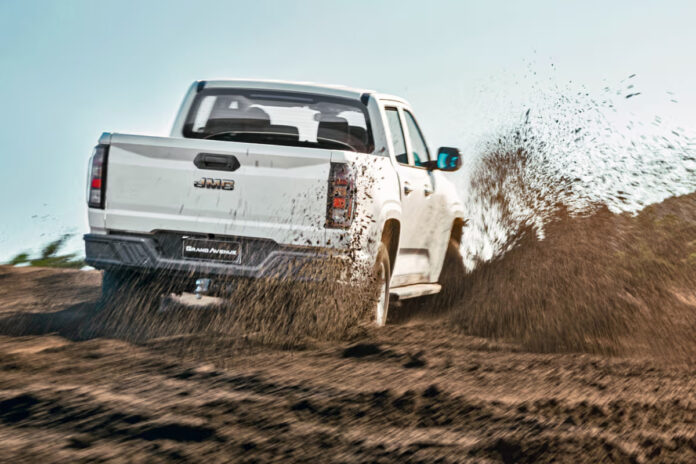As US President Donald Trump unleashes another round of tariff wars on the Global South countries aligned with Brics, China is spreading its automotive wings further into South Africa.
This week, Salvador Caetano SA, a global car dealer, unveiled itself as the official distributor of Chinese automaker JMC’s new vehicles in South Africa.
This partnership comes at a time when Chinese vehicles are taking the local market by storm, sending shivers to the well-known historical car manufacturers in South Africa that had enjoyed a stranglehold on the local market.
Earlier this month, the National Automobile Dealers’ Association (Nada) Dealer Satisfaction Index Survey recognised GWM South Africa as the Gold Status winner in the passenger segment and Most Improved brand in the Passenger/LCV category. Nada said the awards underscored the brand’s growing reputation for dealer support, product quality, and alignment with local market needs.
The mega Portuguese auto distributor’s marriage to a company so Chinese as to be named Jiangling Motors Corporation is intriguing.
Europe has a love-hate relationship with China, and while South Africa feigns being best pals with the Far Eastern superpower, nobody is going to forget the term fong kong anytime soon.
But to complete the Chinese reputation turnaround at the heart of the South African customer, just nine months after its local launch, another Chinese carmaker hit the big time.
Jetour sold 683 units of its SUVs in June and broke into the country’s top 15 automotive brands. The news was enough to send Jetour SA vice president Nic Campbell racing to the bank.
Well, what do you know? From the same June sales data, another Chinese automaker celebrated a victory.
Omoda & Jaecoo (O&J) enjoyed a record-breaking month in South Africa selling 1 009 new passenger vehicles from its humble entry into the local market in April 2023.
“This performance reflects the increasing demand for vehicles that offer bold design, high-end features, and exceptional value, placing Omoda and Jaecoo among the fastest-growing automotive brands in South Africa,” the excited O&J general manager, Hans Greyling announced.
Nada cites improvements for the popularity of Chinese cars in South Africa.
“The rise of Chinese [cars] in South Africa can be attributed to their competitive pricing, rapid improvements in quality and design, and a strong focus on technology-rich features,” said Nada national director Ashley Samuel.
“These offerings have struck a chord with value-conscious consumers, especially in a market shaped by high inflation, interest rates, and fuel costs.”
But Samuel was quick to lace adulation with a warning.
“While Chinese brands offer excellent initial value, their long-term success will depend on sustained after-sales support, parts availability, running costs, and resale value, all essential for building lasting trust in the South African market.”
Of course, this is no guarantee that South Africa, or China for that matter, will survive the Trump tariff headwinds, but it may be the start of a new commercial relationship based on mutual respect and quality between the two nations.
If this can be sustained, the Orange Man would have lost to the Red commies.




